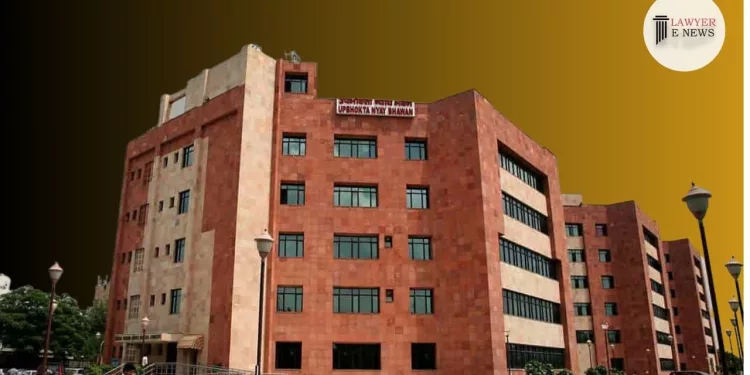If the Property in Proximity to a Source of Heat in Ordinary Use is Damaged by the Excessive Heat Thrown Out, But is Not Actually Ignited, the Damage is Not Within the Fire Policy: NCDRC

The National Consumer Disputes Redressal Commission (NCDRC), New Delhi, has reversed the State Commission of Karnataka’s order, which had partly allowed a claim under the insurance policy for loss in a tissue culture nursery due to air conditioner failure and consequent temperature rise.
Legal Issue: The legal crux of the appeal centered on the interpretation of policy terms regarding coverage of damage due to non-fire-related causes under a Standard Fire and Special Perils Policy.
Case Facts: The appellant, National Insurance Co. Ltd., contested the State Commission’s decision that directed them to compensate Meghana (Bio-Tech) Tissue Culture Nursery for losses incurred due to equipment failure leading to a temperature increase in the growth room. The equipment failure was due to voltage fluctuation, not a fire, leading to substantial damage to the banana tissue cultures housed in the nursery.
Detailed Court Assessment:
Policy Interpretation: The court relied on the precedent set in New India Assurance Co. Ltd. Vs Novelty Palace, emphasizing that damage caused by heat without actual ignition is not covered under the policy terms. The loss was specifically due to the malfunction of an air conditioning unit, which did not constitute a ‘fire’ as per the policy’s clauses.
Proximate Cause Analysis: References were made to the Suraj Mal Ram Niwas Oil Mills (P) Vs. United India Insurance Co. Ltd., underscoring the necessity of a strict interpretation of insurance contracts. The proximate cause of the loss was identified as voltage fluctuation, which is explicitly excluded under the policy’s terms.
Surveyor’s Report and Evidence Review: The surveyor’s report, which did not find evidence of a fire, played a crucial role. The court noted that any deviation from the surveyor’s findings should be backed by strong reasons, which were absent in this case.
Ambiguity in Policy Terms: The respondent argued that ambiguity should be resolved in favor of the insured, citing the protective scope of the Consumer Protection Act. However, the court found no such ambiguity in the policy terms applicable to this case.
Decision: The NCDRC set aside the order of the State Commission, stating that the damages claimed by the respondents did not fall within the risks covered by the insurance policy. The appeal by National Insurance Co. Ltd. Was allowed, emphasizing adherence to the literal terms of the policy.
Date of Decision: April 8, 2024.
National Insurance Co. Ltd. Vs Meghana (Bio-Tech) Tissue Culture Nursery,






